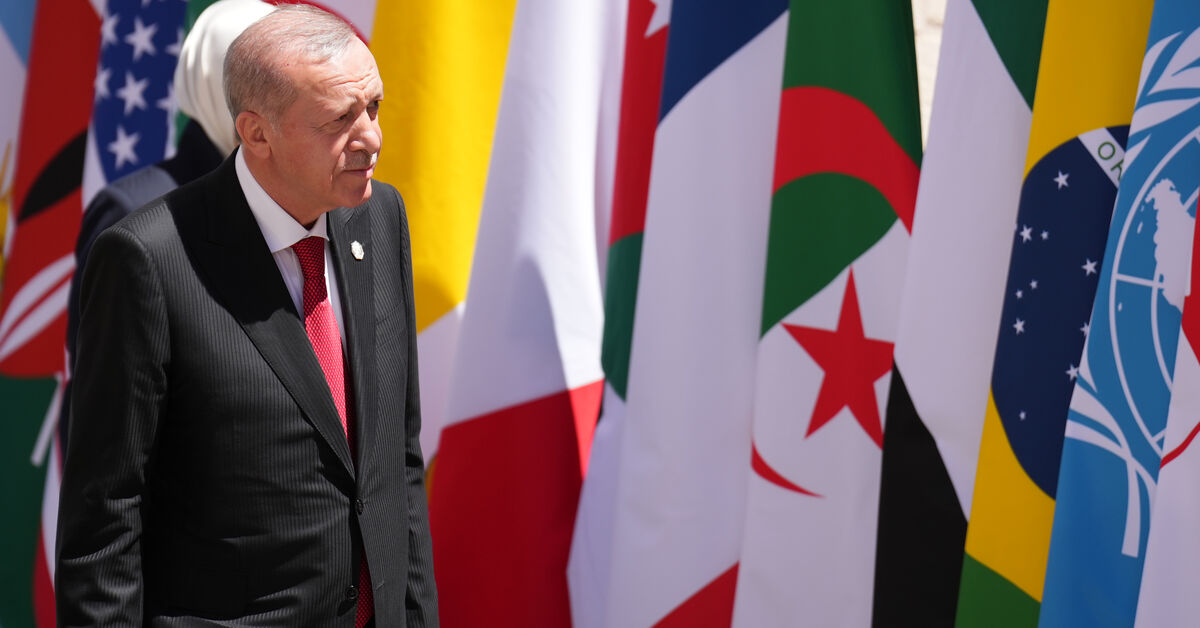Joining BRICS comes with limitations for Turkey: No alternative to NATO
Turkey’s newfound interest in the BRICS group of nations and the Shanghai Cooperation Organization (SCO) does not jeopardize its ties with the West — at least not yet.
Turkish Foreign Minister Hakan Fidan’s visits to China on June 3-5 and to Russia earlier this week have reignited the debate over the possibility of Turkey’s joining BRICS. Russian President Vladimir Putin vowed on Tuesday to “fully support” Turkey’s aspirations in the bloc. US Ambassador to Turkey Jeff Flake, in turn, expressed his hope that Turkey wouldn’t join the BRICS in an interview released on Wednesday.
Ankara’s increasing interest in BRICS has raised questions over whether Turkey is further drifting away from the West, as it coincided with Putin’s announcement of Turkish President Recep Tayyip Erdogan’s unconfirmed attendance at an SCO summit to be held in Kazakhstan on July 3-4. Erdogan had expressed his country’s desire to join the both China-led clubs in the past.
Founded in 2009 by Brazil, Russia, India, China and South Africa, BRICS was formed as a contact group to seek alternatives to the US dollar as a reserve currency in the wake of the United States housing and stock market crash and the global economic recession. Since then, BRICS has evolved into an alternative forum as Western countries’ relations with Russia and China have soured. It is now seen as a future challenger to the EU and the G7, the world’s most advanced industrialized economies led by the United States and joined by Canada, France, Germany, Italy, Japan and the United Kingdom. The “Shanghai Five,” or SCO, meanwhile, is an intergovernmental organization composed of China, India, Iran, Kazakhstan, Kyrgyzstan, Pakistan, Russia, Tajikistan and Uzbekistan that aims to foster joint cooperation among its members in the fields of economic, trade and security.



